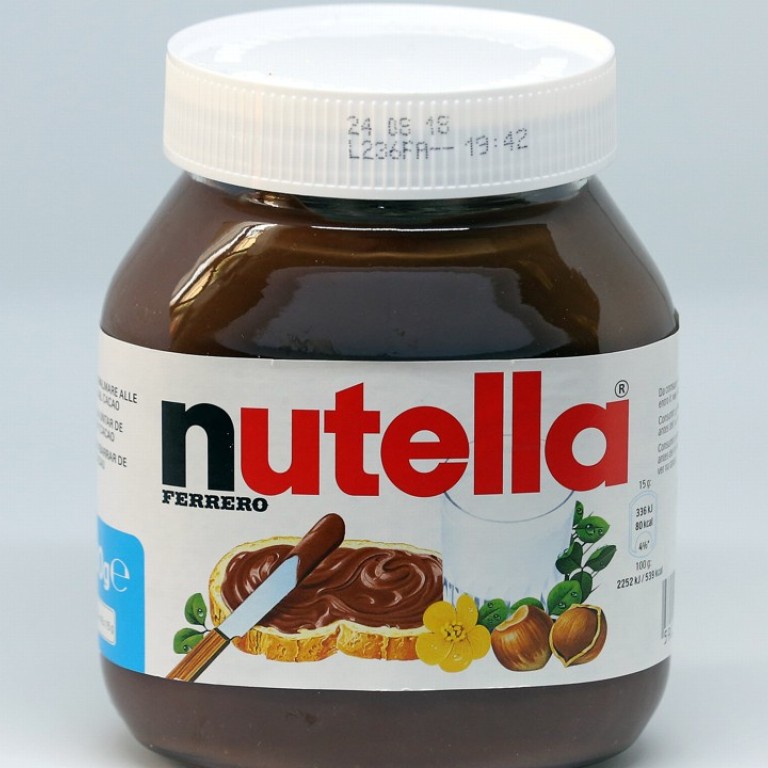
Analysis | Why ‘Nutella riots’ erupted in France, gastronomic capital of the world
Fighting in the aisles over discounted chocolate spread reveals France’s dirty secret: it’s in love with fast food
The service was attended by chefs dressed in their working whites who had travelled from as far afield as Japan to pay their respects to France’s most globally celebrated and influential chef, the man who in 1975 created black truffle soup, named after President Valerie Giscard d’Estaing.
The scion of a family that had been producing professional chefs since the 17th century, Bocuse was the very embodiment of a certain type of Frenchness: a cultured, cultivated perfectionist who elevated the production of food to an art form.
At the same time as his funeral was taking place, in branches of the Intermarché supermarket across France shoppers were fighting to get hold of 1kg jars of Nutella, on special offer at just €1.41 (US$1.75), down from about €4.50.
In Brittany, one branch shifted 400 jars in 21 minutes, according to local reports.
Police had to intervene in a brawl in the northern town of Ostricourt, Le Parisien newspaper reported. An employee at one store in Forbach, near the border with Germany, likened the scenes to an orgy, telling Le Monde newspaper that shoppers had broken items in their rush for the treat.
Video footage of the chaos shows shoppers stuffing jars of Nutella into bags.
“Some customers came the night before the promotion to stash the Nutella pots in other places, so to prevent others from taking them,” Jean-Marie Daragon, the manager of the Intermarché store in Montbrison, central France, told Le Progres, the local paper in the Loire Valley.
A worker at another store in L’Horme told Le Progres that all the jars were gone in 15 minutes, and one customer was given a black eye.
It’s tempting to wonder whether Bocuse’s pall bearers were able to detect a rapid, rotatory motion from within the load on their shoulders – tempting, too, to think that perhaps France should bury its much burnished self-image along with the master.
For this, the home of haute cuisine and haughty chefs, the country of foie gras, baguettes and Charles de Gaulle’s celebrated “246 varieties of cheese” has a dirty secret: it has fallen in love with cheap, fast food.

McDonald’s, that bellwether of all things unpalatable yet delicious, opened its first branch in France in 1972; it fared so badly that the company withdrew from the country until 1979.
Since then, France has grown to become McDonald’s most profitable market outside the US, with more than 1,400 branches at the end of 2016. On a wider note, the number of fast food establishments across France grew from 52,210 to 64,130 between 2011 and 2015.
McDonald’s succeeded by going native, which extended far beyond renaming the Quarter Pounder “ Le Royal Cheese”.
It correctly identified the French predilection for eating à table or en famille and made sure the ambience of its outlets was as much geared to comfort as to speed. Burger King, by contrast, came in brandishing stars and stripes aloft and left with its tail between its legs in 1997 (though it returned in 2012 with a far more subdued – and successful – strategy).
None of this has gone exactly unnoticed or unbemoaned, especially when fast food overtook traditional restaurants by value in 2012, leaving traditionalists angrily waving their ham-and-butter baguettes at the newcomers.
Nutella, by contrast, has had an easy ride in France. Developed in post-war Italy at a time of cocoa rationing and hazelnut glut, the Ferrero company’s spread was an instant hit when introduced in France in the 1960s.
Ferrero distanced itself from the supermarket chaos, saying it had nothing to do with the promotion.
“We want to clarify that the decision for the special offer was taken unilaterally by Intermarché,” the firm said in a statement.
“We regret the consequences of this operation, which created confusion and disappointment in the consumers’ minds
Half of all French families have Nutella on their breakfast table, and for adults it has come to represent a nostalgic taste of childhood.
Such is the affection it’s held in that one French couple were prevented from named their daughter Nutella only by legal decree.
The French are the world’s biggest consumers and producers of the stuff, which enjoys an 82 per cent market share, despite being largely composed of sugar and palm oil.
If there is a chink in Nutella’s chocolatey armour, it is this last ingredient, whose production has been linked to deforestation and the destruction of natural habitats, prompting the French government to propose (and largely back down from) a special “Nutella” tax on products derived from palm oil. France’s Super U supermarket chain, a rival to the Nutella-riot-causing Intermarché, has already removed palm oil from its own-label products, and the pressure on the big brands to do the same is likely to mount.
In the meantime, in a country still reeling from a butter shortage and rocketing prices, it is tempting to echo the words of Marie Antoinette: “Let them eat Nutella”.
After all, it’s World Nutella Day February 5.
Additional reporting by Tribune News Service

